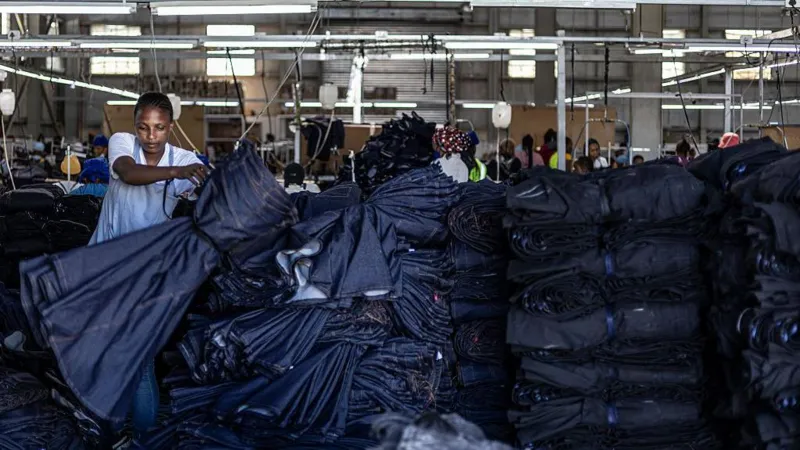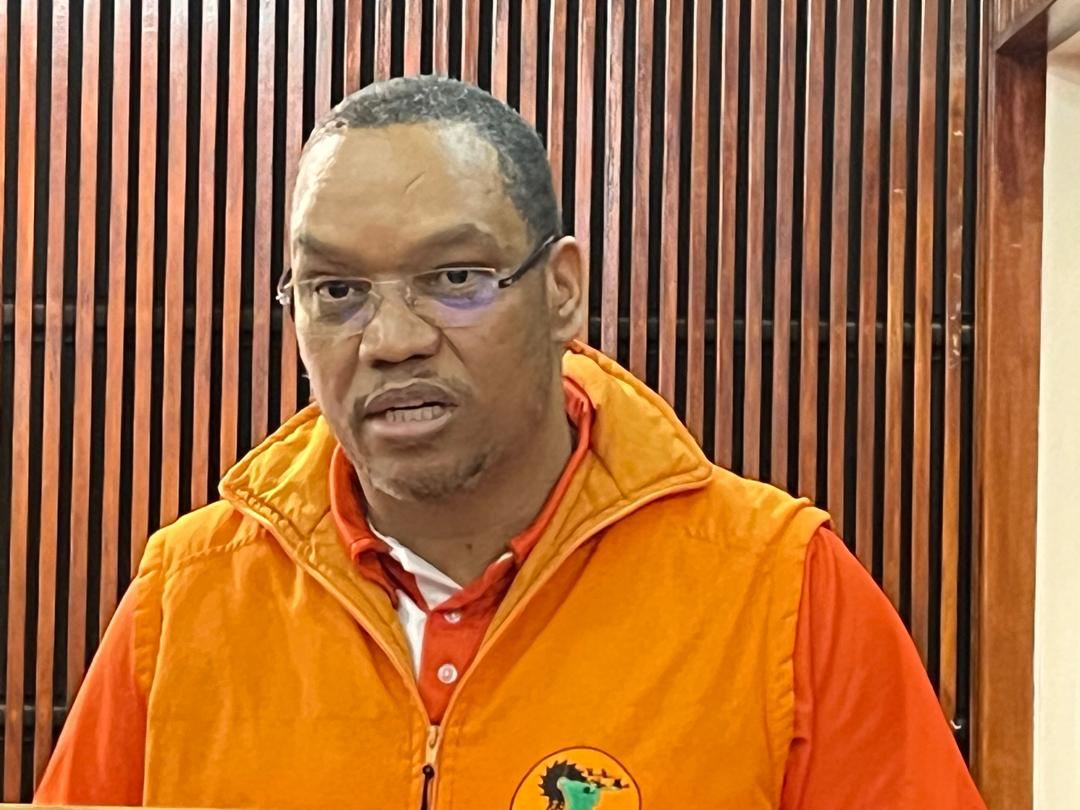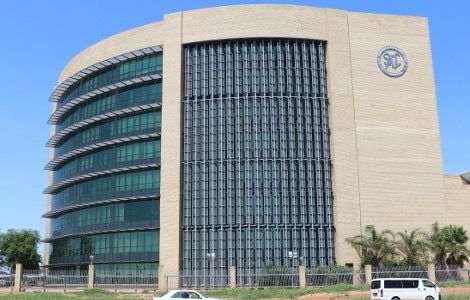THIS letter is addressed to people who attended the Earth Summit and World Summit on Sustainable Development (WSSD) on behalf of the government.
As a citizen of this beautiful Land of the Brave, I would like to be informed about the development and progress that Namibia has made since the Earth Summit (1992) in Rio and WSSD (2002) in Johannesburg. I am asking this question in order to be updated with the latest development that our country has achieved at this point in time.Being a teacher/educator at the College of Education who is interested in the development and implementation of the concept of Education for Sustainable Development (ESD) and responsible in preparing future teachers for our country I am worried about the progress we are making as a country.My concern is emanating from the fact that we are currently in the third year since the United Nations General Assembly adopted and declared a resolution on the UN Decade for Education for Sustainable Development (UNESD) in December 2002.Since April 2005 to September 2015, our government has signatory obligation to the UNESD agreement.At this point I represent the majority of teachers in the country who are ill-informed about the UN Decade for Education for Sustainable Development.I feel there is a need to bring to the fore awareness on ESD activities, action plans and implementation processes.I am also raising this question because this commitment is a follow-up to the Earth Summit in Rio de Janeiro, which endorsed the Local Agenda 21.The Local Agenda 21 puts an emphasis on Chapter 36, which acknowledges the indispensable importance of education in the 21st century.This summit (The Rio) described four thrust points in education to begin promoting ESD, which are: improving basic education, reorienting existing education to address sustainable development, developing public understanding awareness, and training.Currently I am interested to know from the people who accompanied the Head of State at both summits as to what has been or is being done since 1992 in terms of creating and implementing this process particularly within the Ministry of Education.As far as I know, other nations in the SADC region and the world have implemented ESD after Rio; a process, which I do agree, takes time.For Namibia information are hardly available as far as this issue is concerned.For the purpose of opening this discussion, I would like to use two examples based on the above-mentioned ESD agenda regarding education.Point 2 deals with “reorienting existing education to address sustainable development”, which is one of the issues that disturb me, the most.Although I am teacher educator serving on the Curriculum Panel for Education at the National Institute of Education in Namibia (NIED); I can regrettably inform the audience that I have never come across any discussion about these ESD issues.I cannot remember at any occasion where the concept was ever discussed neither at NIED, regional or school levels.Looking at the commitments of other countries within the SADC region at the tertiary level, where Zambia has developed an Environmental Education (EE) programme at the Masters level, Botswana a BEd degree, Zimbabwe a Post Graduate Certificate in Education (PGCE).South Africa managed to develop a programme in five universities up to the PHD level; one of them is Rhodes University.The university has advanced activities in its ESD and it is one of the four Regional Centres of Expertise (RCE) in Environmental education in Africa.These countries in the SADC region have establishing a network of cooperation among certain universities in the above-mentioned programme, which was acknowledged by the Windhoek, based UNESCO cluster centre.I would also use the example around the third point of the ESD agenda on “developing public understanding awareness”.A question needs to be raised; whose responsibility is it to engage society with regard to awareness on international agreements that Namibia is signing on behalf of the ordinary citizens.If educational awareness is not raised; ordinary citizens will continue with their usual way of polluting the air, water, burning forest, etc.It is important to realise that global commitment should be every citizen’s contribution to “meet the needs of the present generation without compromising the needs of the future generation” (Brudtland report, 1987).At this stage of UNDESD, most nations have established a tripartite initiative between the educational, local (government) municipality and local communities in terms of their collective role towards environment.These relationships promote and strengthen their understanding of terms such as ESD within their own context, language and culture in order to localise the debate for their own convenience.I strongly feel that it is important for this discussion to urgently start in our communities in order to make it part of our everyday life.Obviously the point I am making here is that the Ministry of Education should implement the mandate to create conducive environment, which will enable debates within the Namibian society.Education in my view is central to the improvement of quality of life and raising the economic status of our country in reaching Vision 2030.In implementing ETSIP, the Ministry of Education strives to improve the society’s life conditions through quality educational attainment for the next generation.By doing so environmental education awareness should be the central point of departure in achieving an economic driven society.I singled out education as the mother of all professions not because I necessarily want to point a finger to this Ministry, but I would like to show the important role the Ministry can play in this matter.As a country we should report back to the next summit in September 2015 about the progress that we have made as a nation.Our Head of State promised the world Namibia’s commitment to UNDESD when he signed the agreement sometime ago.Can Namibia keep to the promise: if so what is the way forward from now? Rudolph Haingura RunduI am asking this question in order to be updated with the latest development that our country has achieved at this point in time.Being a teacher/educator at the College of Education who is interested in the development and implementation of the concept of Education for Sustainable Development (ESD) and responsible in preparing future teachers for our country I am worried about the progress we are making as a country.My concern is emanating from the fact that we are currently in the third year since the United Nations General Assembly adopted and declared a resolution on the UN Decade for Education for Sustainable Development (UNESD) in December 2002.Since April 2005 to September 2015, our government has signatory obligation to the UNESD agreement.At this point I represent the majority of teachers in the country who are ill-informed about the UN Decade for Education for Sustainable Development.I feel there is a need to bring to the fore awareness on ESD activities, action plans and implementation processes.I am also raising this question because this commitment is a follow-up to the Earth Summit in Rio de Janeiro, which endorsed the Local Agenda 21.The Local Agenda 21 puts an emphasis on Chapter 36, which acknowledges the indispensable importance of education in the 21st century.This summit (The Rio) described four thrust points in education to begin promoting ESD, which are: improving basic education, reorienting existing education to address sustainable development, developing public understanding awareness, and training.Currently I am interested to know from the people who accompanied the Head of State at both summits as to what has been or is being done since 1992 in terms of creating and implementing this process particularly within the Ministry of Education.As far as I know, other nations in the SADC region and the world have implemented ESD after Rio; a process, which I do agree, takes time.For Namibia information are hardly available as far as this issue is concerned.For the purpose of opening this discussion, I would like to use two examples based on the above-mentioned ESD agenda regarding education.Point 2 deals with “reorienting existing education to address sustainable development”, which is one of the issues that disturb me, the most.Although I am teacher educator serving on the Curriculum Panel for Education at the National Institute of Education in Namibia (NIED); I can regrettably inform the audience that I have never come across any discussion about these ESD issues.I cannot remember at any occasion where the concept was ever discussed neither at NIED, regional or school levels.Looking at the commitments of other countries within the SADC region at the tertiary level, where Zambia has developed an Environmental Education (EE) programme at the Masters level, Botswana a BEd degree, Zimbabwe a Post Graduate Certificate in Education (PGCE).South Africa managed to develop a programme in five universities up to the PHD level; one of them is Rhodes University.The university has advanced activities in its ESD and it is one of the four Regional Centres of Expertise (RCE) in Environmental education in Africa.These countries in the SADC region have establishing a network of cooperation among certain universities in the above-mentioned programme, which was acknowledged by the Windhoek, based UNESCO cluster centre.I would also use the example around the third point of the ESD agenda on “developing public understanding awareness”.A question needs to be raised; whose responsibility is it to engage society with regard to awareness on international agreements that Namibia is signing on behalf of the ordinary citizens.If educational awareness is not raised; ordinary citizens will continue with their usual way of polluting the air, water, burning forest, etc.It is important to realise that global commitment should be every citizen’s contribution to “meet the needs of the present generation without compromising the needs of the future generation” (Brudtland report, 1987).At this stage of UNDESD, most nations have established a tripartite initiative between the educational, local (government) municipality and local communities in terms of their collective role towards environment.These relationships promote and strengthen their understanding of terms such as ESD within their own context, language and culture in order to localise the debate for their own convenience.I strongly feel that it is important for this discussion to urgently start in our communities in order to make it part of our everyday life.Obviously the point I am making here is that the Ministry of Education should implement the mandate to create conducive environment, which will enable debates within the Namibian society.Education in my view is central to the improvement of quality of life and raising the economic status of our country in reaching Vision 2030.In implementing ETSIP, the Ministry of Education strives to improve the society’s life conditions through quality educational attainment for the next generation.By doing so environmental education awareness should be the central point of departure in achieving an economic driven society.I singled out education as the mother of all professions not because I necessarily want to point a finger to this Ministry, but I would like to show the important role the Ministry can play in this matter.As a country we should report back to the next summit in September 2015 about the progress that we have made as a nation.Our Head of State promised the world Namibia’s commitment to UNDESD when he signed the agreement sometime ago.Can Namibia keep to the promise: if so what is the way forward from now? Rudolph Haingura Rundu
Stay informed with The Namibian – your source for credible journalism. Get in-depth reporting and opinions for
only N$85 a month. Invest in journalism, invest in democracy –
Subscribe Now!










